The ALIA
Volume I. Issue XVIII. Dec. 14, 2020.
Dear Readers,
Welcome to the eighteenth issue of The ALIA, a weekly newsletter dedicated to the lives of Asian women in America, and beyond, where we bring you the latest news and insightful conversations with industry professionals. In this volume, we feature women in fashion, media and arts. Find us on Instagram. Subscribe for free here.
Letter from the editor:
Hello! It’s so good to see you again, and a warm welcome to our new subscribers. We’re counting down the last three weeks of 2020 with hope and excitement! Last week, we asked you to reflect on what you’re most grateful for this year. In this issue, we share some of your responses. We’re also looking for Christmas giveaway ideas, if you have Asian brands you’d recommend, send them our way!
I chatted with director and cinematographer Isabella Tan in a candid interview about her life growing up in Malaysia, and we exchanged laughs about the food rivalry between Singapore and Malaysia. She channels her international background into her company, Rebel Motion, which she founded after graduating from NYU’s Tisch School of the Arts. Her story of pursuing film wasn’t easy with family pressures and social expectations. We discuss all of it and more in this issue.
As the year comes to a close, we’re thinking of rebranding and realigning – with the possibility of a second volume and new guests. Let us know what you’re thinking and what you’d like to see more of in this 10-question feedback form.
I hope you enjoy!
Sincerely,
Annie Lin
Founder of The ALIA
If you could like to learn more about this project, please contact us at contact@alia.news
Asian Creatives
Clockwise from top left: @juneesteoh, @jyjosephine, @mongabong, @lemielch
Community News
Do you dare? • The latest binge-worthy Netflix rom-com stars Japanese American actress Midori Francis as Lily and Austin Abrams as Dash. As strangers, the two hopefuls exchange dares through a notebook they pass back and forth across New York City. See if you can spot the subtle nods to Francis’ Japanese culture in the series. Watch the trailer: Youtube
Out of this world • Overachieving is an understatement for 36-year-old Jonny Kim, the first Korean-American to become a NASA astronaut, who was selected as one of 18 astronauts for NASA’s 2024 mission to the moon. A former Navy Seal and a doctor with a Harvard medical degree, Kim would also be the first Asian American to walk on the moon. Read: BBC
Paving the way • Young Asian politicians are becoming elected officials in California. Alex Lee, 25, made history as the first openly bisexual state legislator in California and the youngest Asian American state legislator. Jocelyn Yow, 25, became the youngest woman of color to ever serve as a mayor in California. Read: ABC7
Grab the popcorn • Forget “Keeping up with the Kardashians.” The latest reality TV show series, “House of Ho,” follows the lives of an upper-class Vietnamese-American family in Houston, Texas. It is a portrayal of an immigrant’s success story and juxtaposes generational differences, but there’s bound to be drama. Watch the trailer: Youtube
In Conversation with Isabella Tan
This week, we’re joined by director and cinematographer Isabella Tan, 26. Sitting in her hotel room in Taipei, Taiwanese-born Tan chats about her upbringing in Malaysia, her relationship with her family and founding her own company after graduation. Her company, Rebel Motion, based in New York, aims to bridge the gap between Malaysian and American creatives.
This interview has been edited for clarity and conciseness.
Tell us about how you got into photography and cinematography
It started as a hobby of mine. It was something I picked up on my own, and it stuck. I once did my friend’s media studies homework for her in school because she had a hard time making a movie poster. The teacher ended up liking the final product so much he asked her to recreate it in front of the class, which she couldn’t do, and they found out I did it. I thought I would get into trouble, but he just asked, why aren’t you in my class? He brought my parents in and convinced them I was talented. Eventually, my parents agreed to let me take the class.
My parents wanted me to go to Cambridge for college because I had gotten accepted for pre-law and English literature. I applied to NYU behind their backs and got in to study film at Tisch School of the Arts. I took a gap year, and my parents sent me to Taiwan to learn Chinese because they said I was too white. Growing up, my parents were super strict. I was never allowed to have sleepovers. I never went out past 7 p.m. When I was in Taiwan, I met a lot of Americans in the language program that inspired me to pursue film school in America. My parents were very against the idea of film school in America. They didn’t want to support me financially or emotionally. So, I went to the bank and applied for a loan.
Eventually, they had to accept I was going to do what I wanted. I did a minor in business to appease their worries. During college, I interned at production companies and creative agencies but I felt the film industry was too white and male-dominated. The commercials we were making were very white, and it wasn’t until last year when people were pushing for diversity. Now people of color and LGBTQ are at the forefront of film and photography. I have my fingers crossed that this isn’t just going to be another trend.
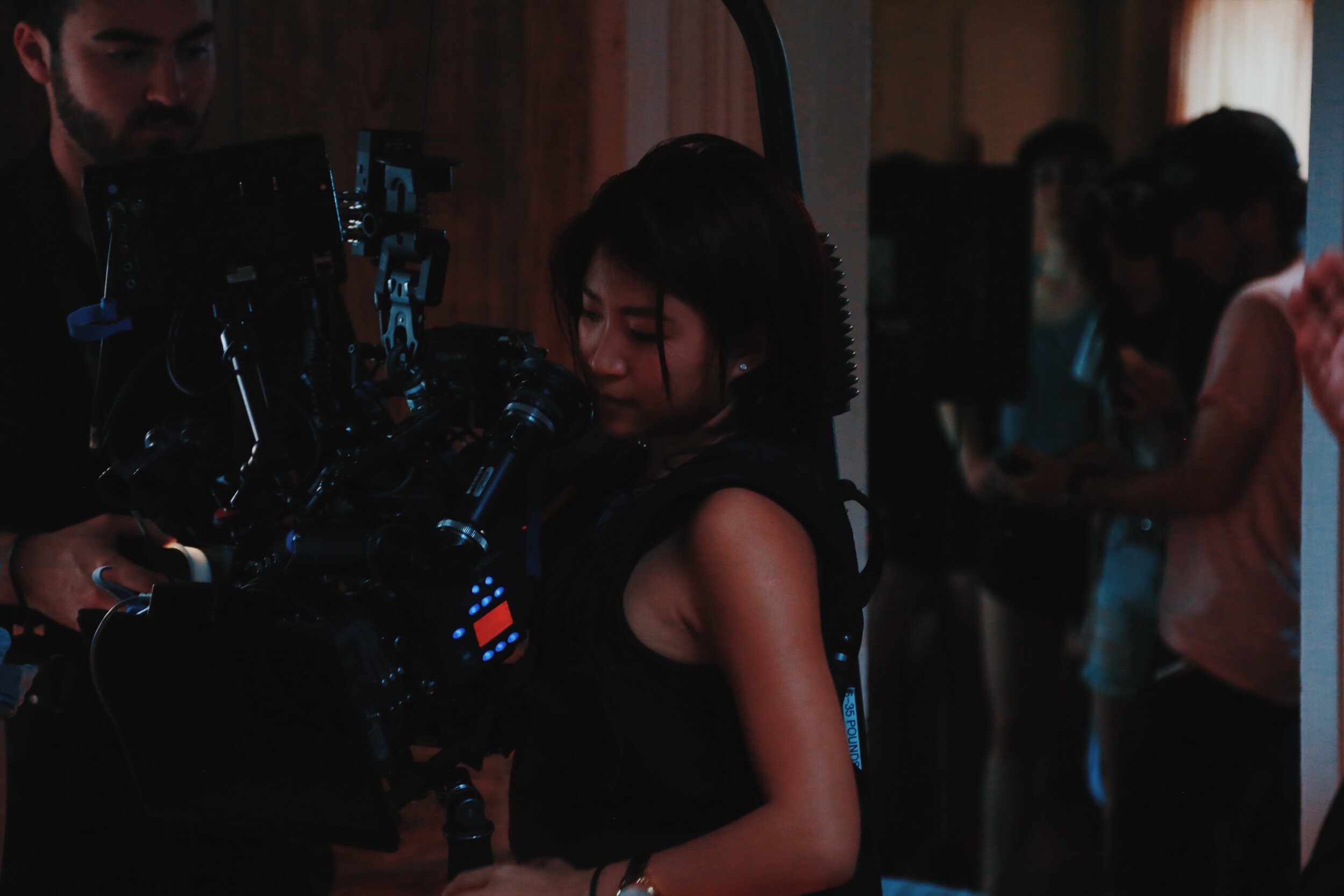
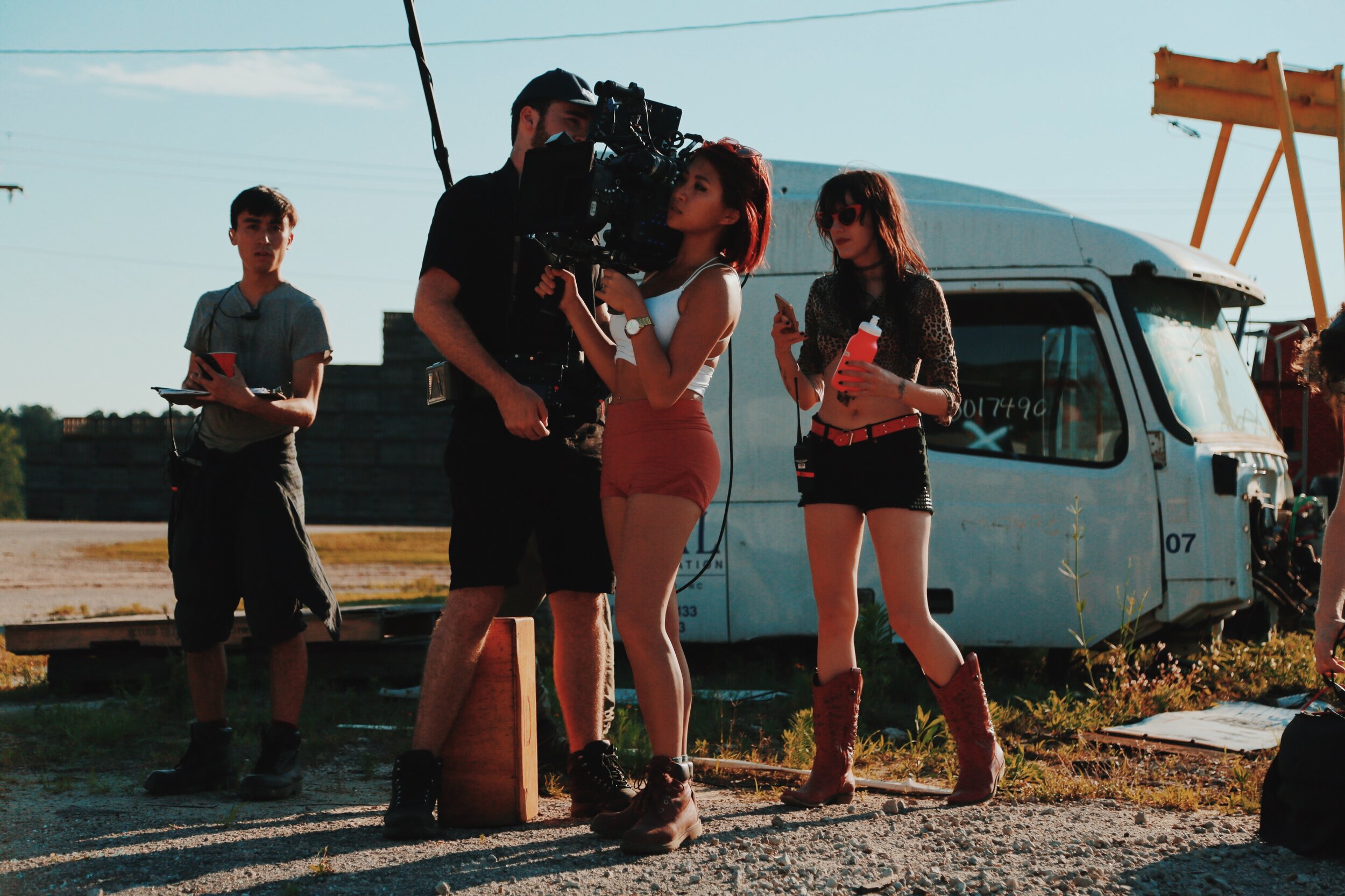
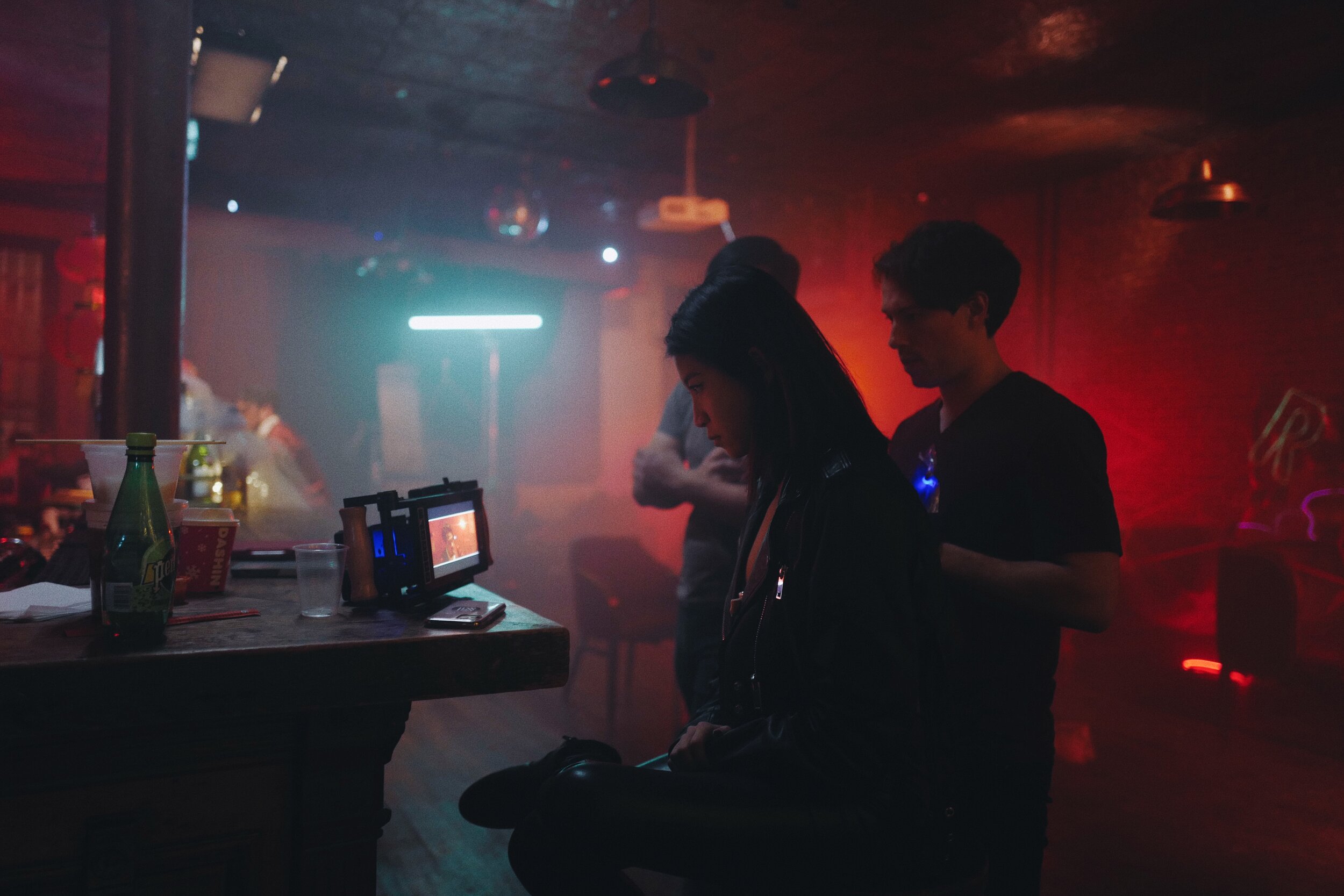
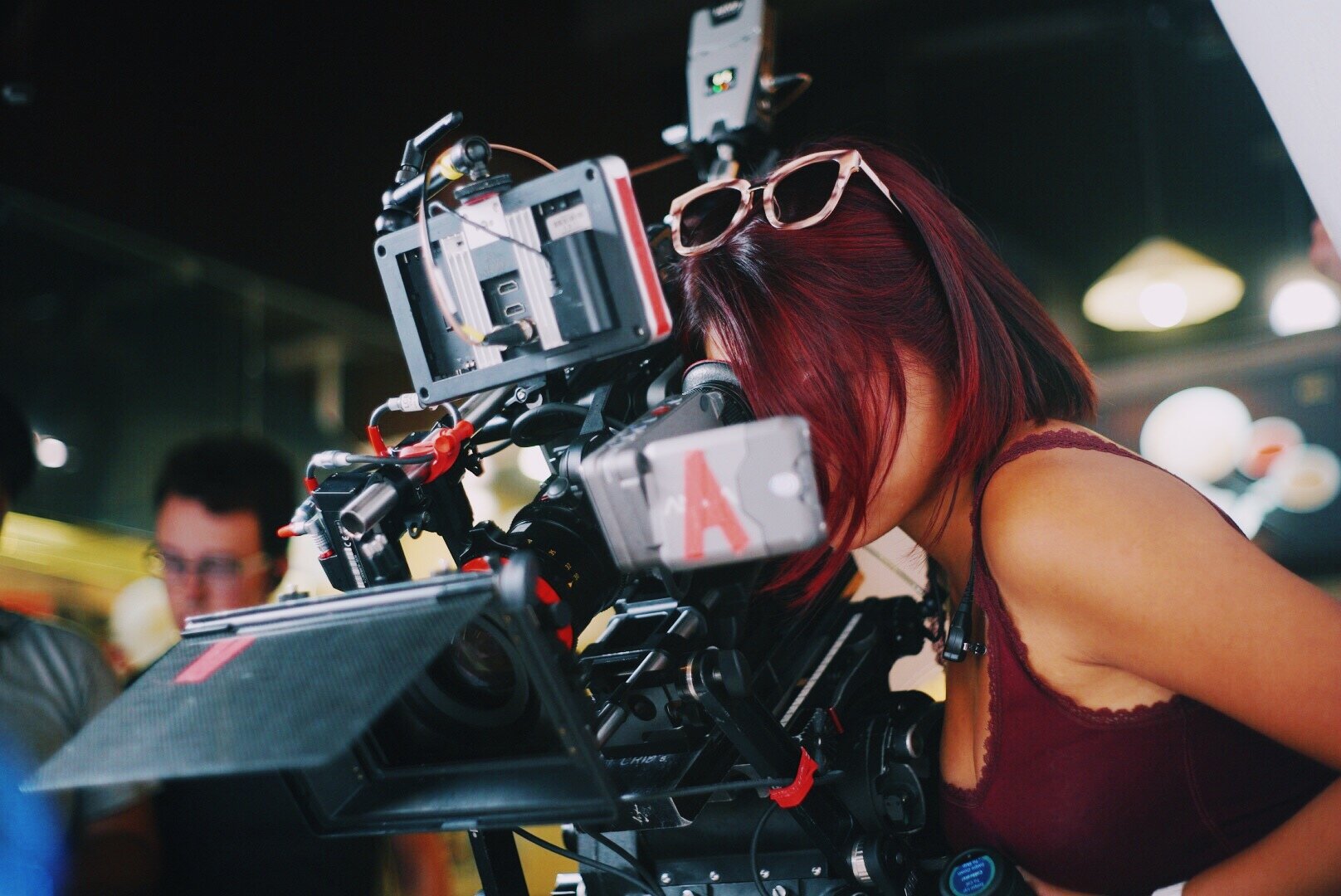
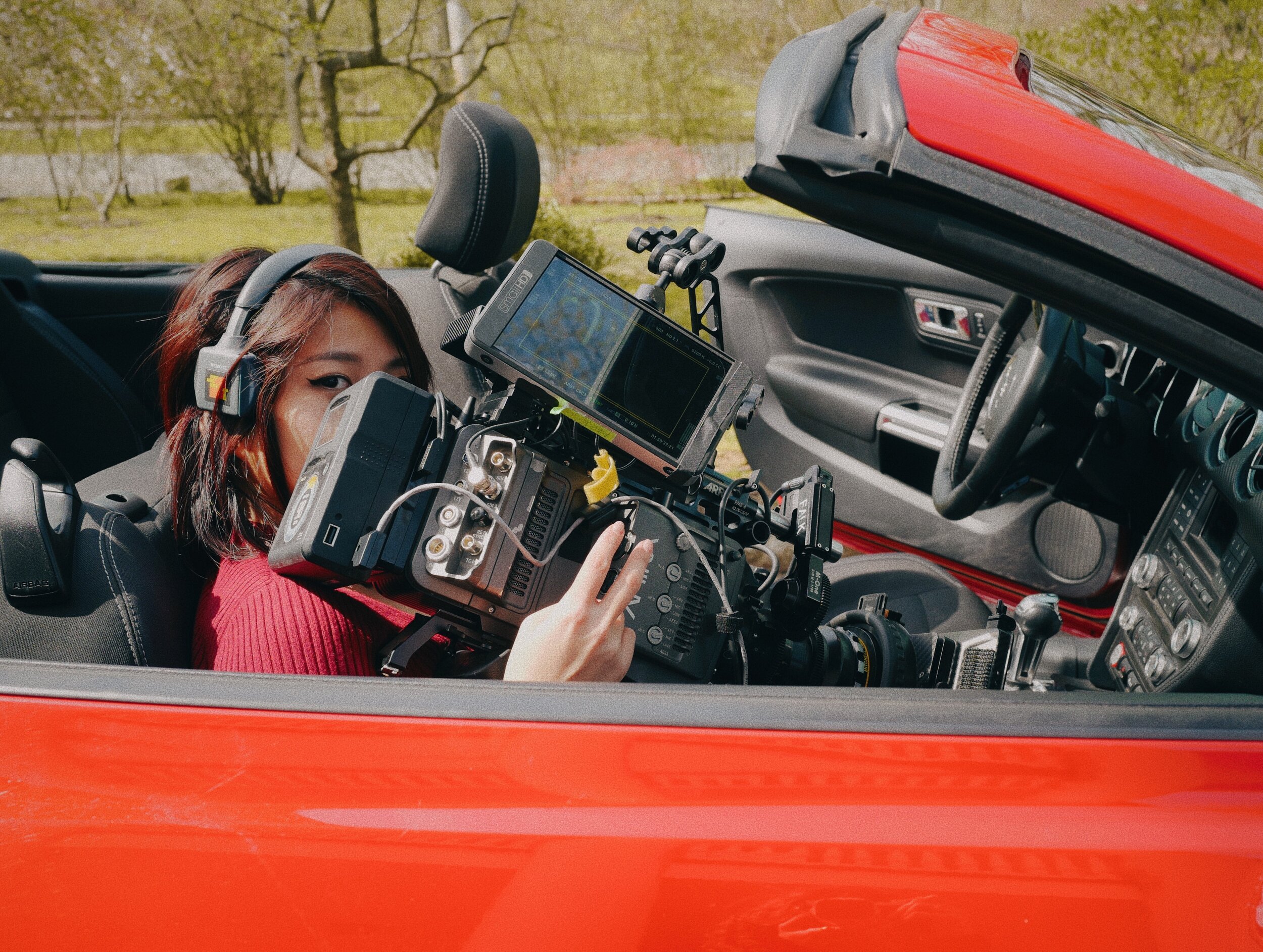
Growing up as a third culture kid in Malaysia, then moving to New York City, how did your connection to your Asian identity change?
It wasn’t until I graduated from college that I finally started to embrace my culture and identity. To be completely honest, I hated being Asian for the longest time. I think growing up in an international school had an impact. It’s a third culture experience. I’ve always had an identity crisis and never felt like I belonged anywhere. I was too white for Malaysia, too Asian for America. That experience has influenced my work greatly.
I’m still learning about America. I personally didn’t know the extent of police brutality and corruption. In Malaysia, it was all background noise. The objectification and fetishization of Asians was not obvious to me until I went to America either. Yellow fever is the real pandemic of the world. I have never been so fetishized in my life. It wasn’t until after the 10th time someone asked me what kind of Asian I am that I realized that’s a problem. I felt like I didn’t learn a lot about the world until the last four or five years. I couldn’t apply that to my work until recently because I wasn’t informed about it. As immigrants and women of color, we go through so much no matter what field we’re in.
There’s a lot of internalized and systemic racism in Asia as well, within our schools. The only Asian teachers we had were the Chinese and Malay language teachers. Everyone else was white, except the technician workers and cleaning people. I didn’t realize what was going on, and I’ve had to do so much unlearning within myself.
What was it like to start your own production company, and where did the idea come from?
During college, the internships I did were mostly run by white men, and I didn’t enjoy the experience. When I graduated and had to apply for a job, I didn’t like any of the companies, so I decided to make one I wanted to work for. I was trying to pursue a commercially successful film career because of pressure from my parents. But what I really wanted to do with my work was to open people’s eyes to stories they might not come across, whether it’s stories of the Asian experience or the third culture experience, and broaden their minds, so they don’t think commercialized stories are all there is. Many talented people from Asia don’t have the privilege to travel, which is why I started my company to create a platform between America and Southeast Asia where creators from both sides of the world can collaborate.
I did all the legal paperwork to start the company and hired people I knew from college. It’s been a learning experience as a young business owner. In the film industry, you work with many of your friends, and creative collaborators become your friends. The lines can become blurred. I made the mistake of not drawing those boundaries as a business owner and learned a lot of hard lessons. I had to make it clear that this is how we’re going to do things.
It wasn’t doing well as a company because it’s so hard to do the work I want to do without traveling back and forth consistently. I laid out the groundwork and was ready to put in the work this year. Then, COVID hit, and travel was obviously off-limits. I opened a branch of Rebel Motion in Malaysia and hired people at the beginning of this year. The plan was to collaborate with creatives from Malaysia, so stay tuned for how the cards play out.
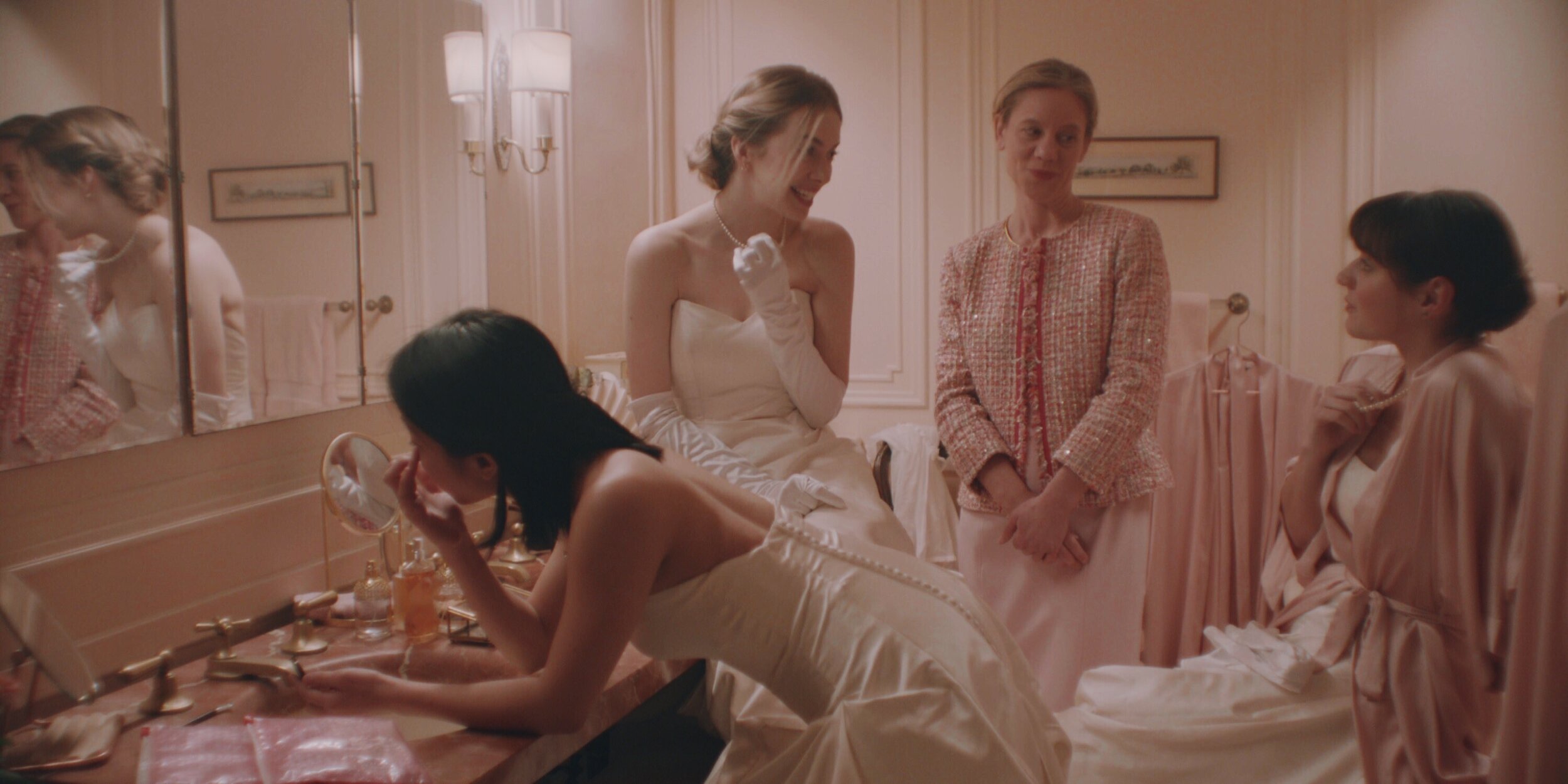
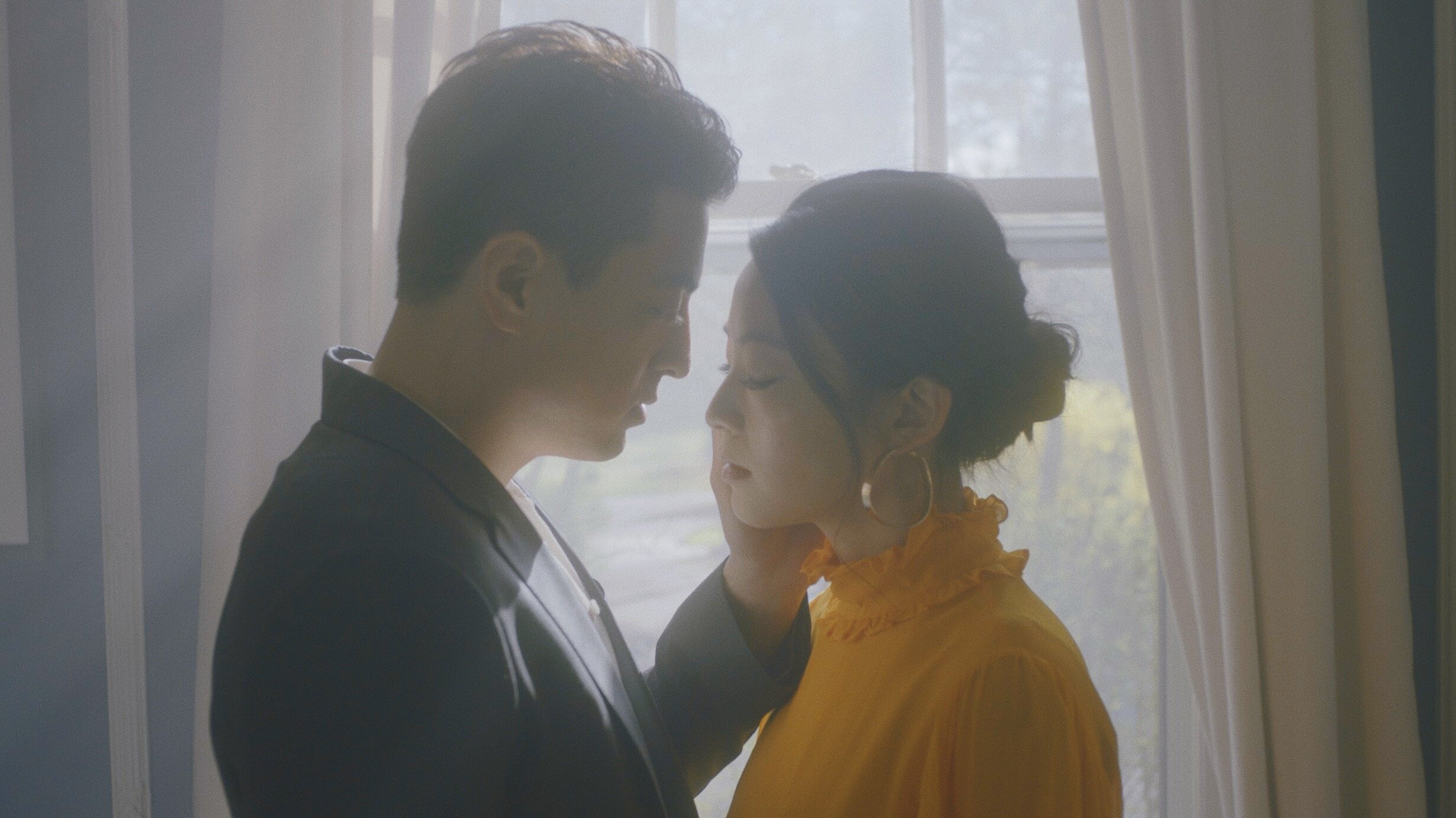
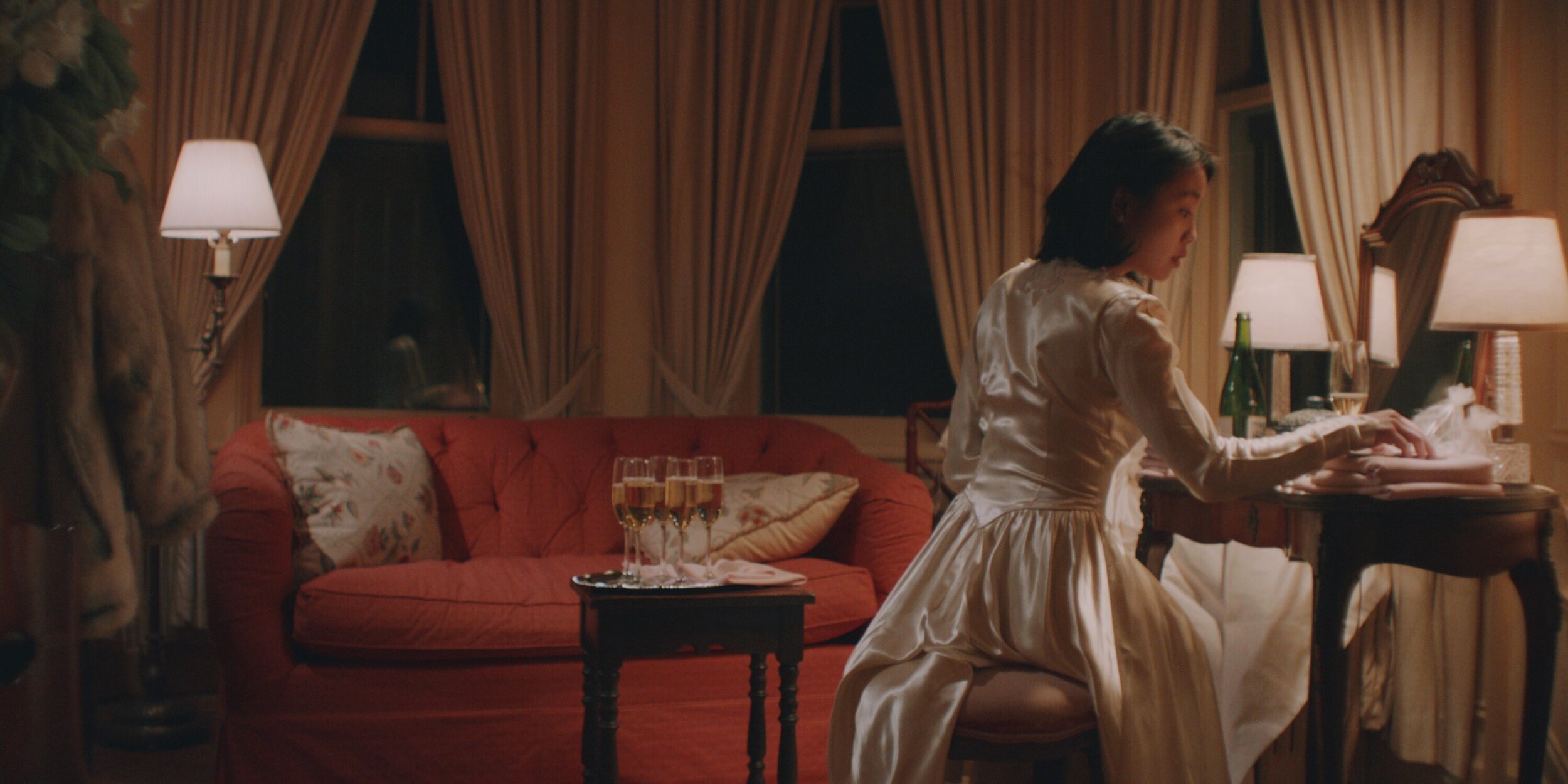
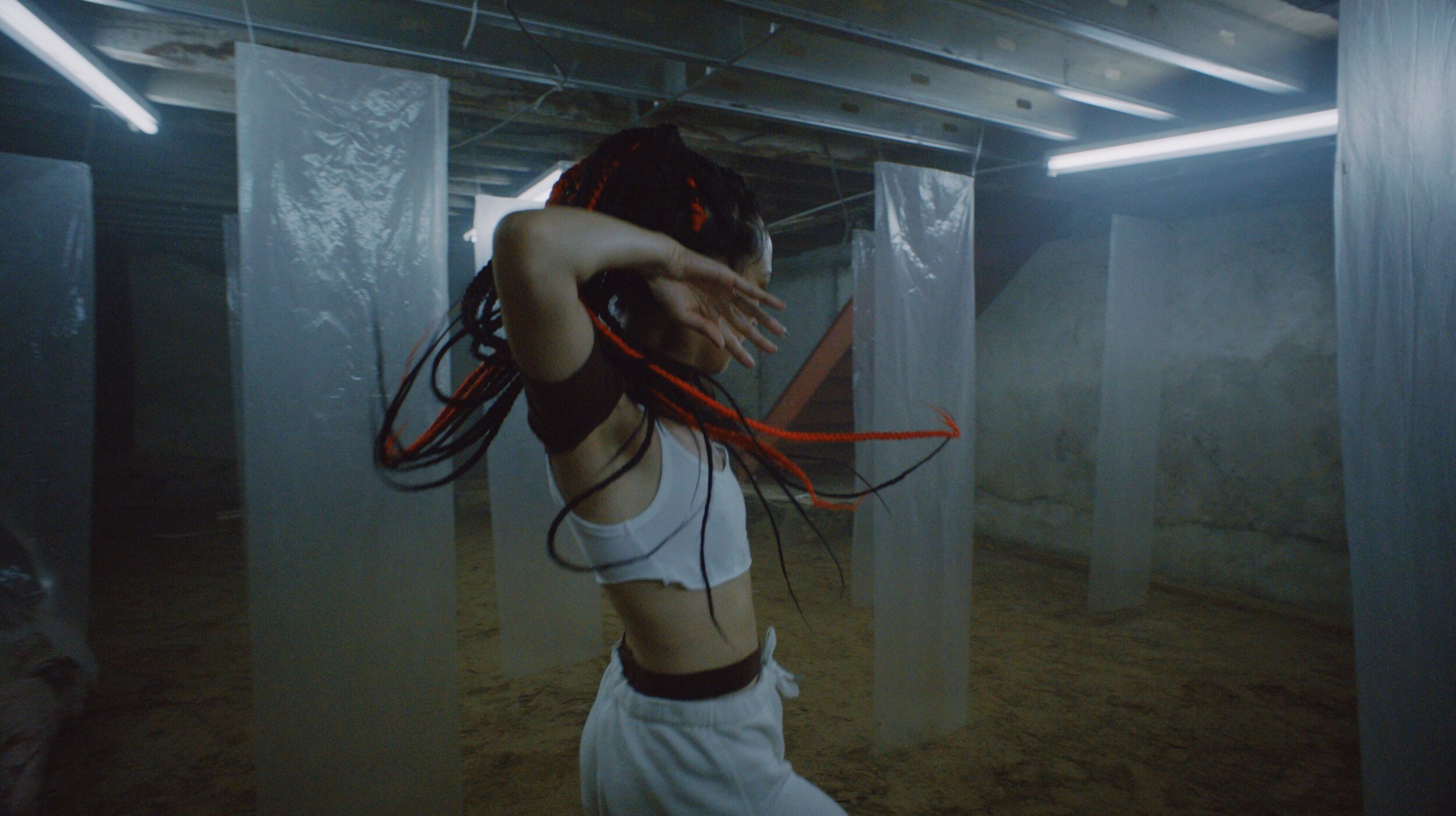

Whenever we get a job, clients must sign a cultural contract that dictates a woman has to be the head of production, and they have to be okay with that. It also states that we do not tolerate any discrimination. We’re inclusive regardless of sexuality, gender, race, and you must have at least one person of color involved behind and in front of the camera. If they aren’t comfortable with that, then we won’t work with them. It’s a shame that you have to make someone sign a contract so that they’re inclusive.
If I could go back in time, I might not have started my company so soon. I would have waited until I was more established. But I felt the need to so quickly because of my parents. The idea of freelancing is so foreign to them and they don’t understand how the creative industry works. For the past few years, I was unconsciously still trying to prove to them that what I’m doing is legit.
How has the pandemic shifted your perspective on life?
On a personal level, the pandemic has allowed me to take a break for the first time in the last four or five years. I got to refocus my energy and reevaluate what was important to me. I was constantly working all the time. Culturally, there’s a toxic mentality where we always feel the need to prove ourselves and to be the best at what we do. It’s an ingrained Asian thing.
I think that is why mental health is such a big problem in our community. For the first time in a long time, I had the space to reflect on myself. I didn’t realize I was using work as a distraction to tune out how I was feeling. I didn’t want to think about my not-so-great relationship with my parents. I didn’t want to confront the trauma that I had shoved deep down. Realizing has that been very grounding. I’ve struggled with mental health personally because my parents don’t believe in it. It was difficult for me to finally go to therapy.
I feel like I’ve wasted so much of my early 20s on terrible relationships that no amount of life has prepared me for. I wasted time on partying and being rebellious because I didn’t get to do any of that as a teenager. Being able to let loose was great but it took a toll on me during my college years. I feel like I had to jump through more hoops and sprint to catch up to everyone else who was miles ahead of me. At least, I know what I enjoy doing and what I want for now.
Photographs courtesy of Isabella Tan.
Asian-owned Brands
Weekly Thoughts
Last week: What are you grateful for this year?
Your responses:
"I'm grateful that I mended a broken friendship that's like family to me" - Karina Chou, Kuala Lumpur, Malaysia
"Being with family after being stuck halfway across the world for half the pandemic" - Layan Dahhan, Dubai, United Arab Emirates
"This year made us realize that life is short. Don't overthink things. Just follow your heart, and do it. At the same time, being with family is what's important now." - Maria, Singapore
This week: What are you looking forward to next year?
#ALIAtalks to join the conversation and we will feature the best submissions in next week’s newsletter. For email submissions, please email contact@alia.news
Support The ALIA


